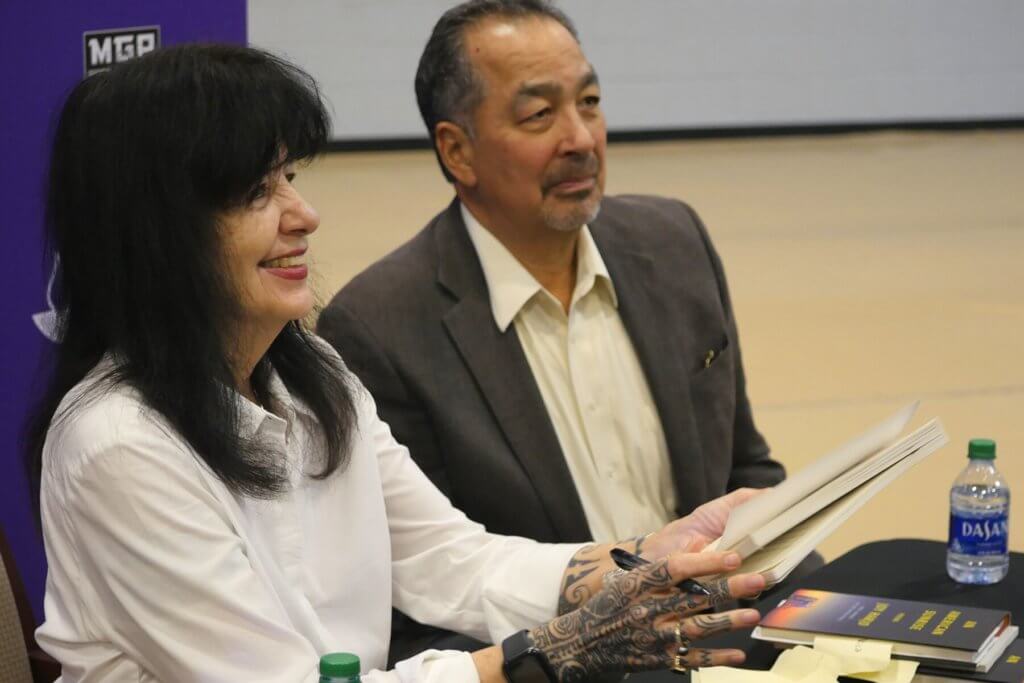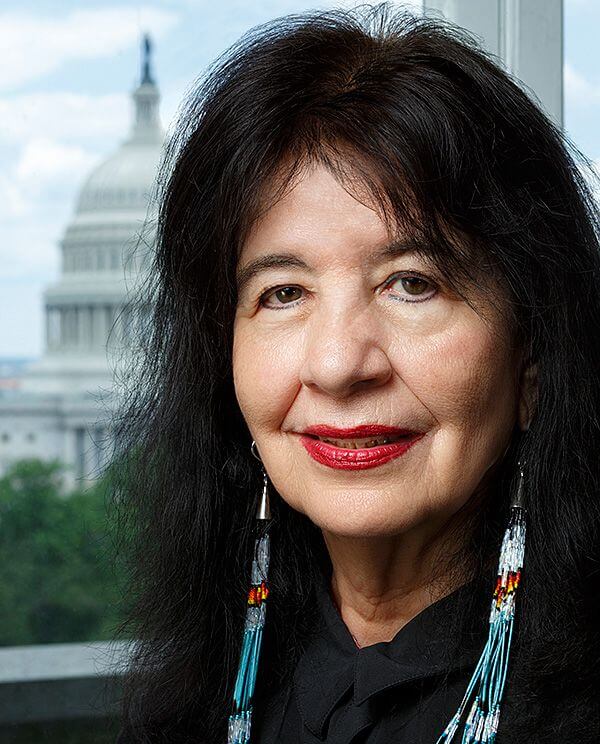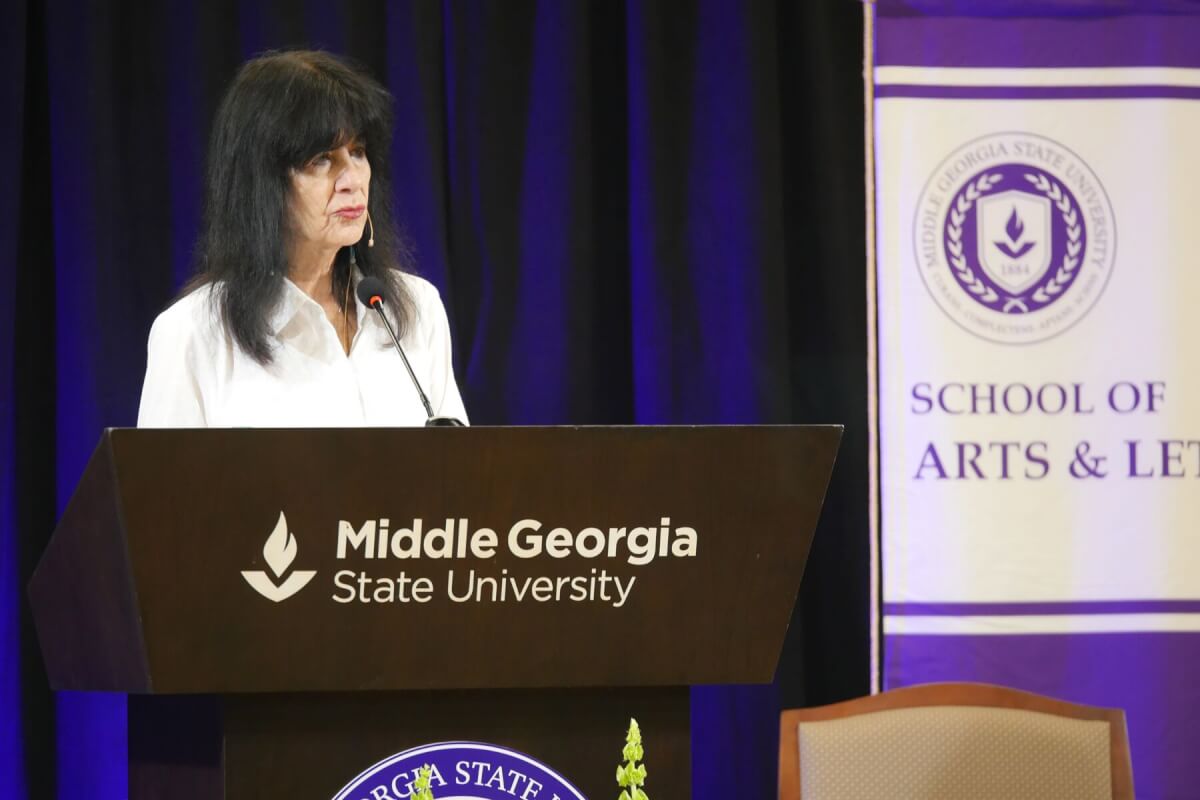By Michael W. Pannell
U.S. Poet Laureate Joy Harjo has been named to a second term as the nation’s premier poet and ambassador for poetry.
Harjo, a member of the Muscogee (Creek) Nation, was in Macon in February for book signings and readings before crowded audiences at both Middle Georgia State University and Ocmulgee Mounds National Historical Park.
In continuing her appointment, Librarian of Congress Carla Hayden called Harjo “a gift to the nation” and said a focus in her second term will be a project called “Living Nations, Living Words: A Map of First Peoples Poetry.” The project is a digital showcase of contemporary Native American poets including biographies, readings and discussions of their work, according to a Library of Congress release.
Author of award-winning collections of poetry, children’s books, plays, songs and other creative works, Harjo recently was editor of “When the Light of the World Was Subdued, Our Songs Came Through: A Norton Anthology of Native Nations Poetry,” a collaborative effort of Native authors to be published in August.
Prior to her February trip to Macon, Harjo spoke to Macon Magazine and gave this advice to aspiring poets: “… love and believe in your art. You have to take care of it by always reading, studying, learning and listening. I see the poet as someone singing of the history and mystery of what it means to be human. But learning and listening – that should be the same for any person who is alive and trying to make the most of this thing called living.”
Harjo is the 23rd U.S. Poet Laureate and first Native American to be appointed. Her new 2020-2021 term will allow her to serve through May of 2021.
Harjo’s Muscogee (Creek) ancestors were the last people to live at Ocmulgee Mounds, a site she said was meaningful to her and one she had visited numerous times in the past decade. Muscogee (Creek) people dwelt at the site along the Ocmulgee River and grew to live and work throughout Georgia and Alabama as farmers, shopkeepers and in other trades as well becoming plantation owners prior to forced removal from their homeland and illegal loss of property following enactment of the Indian Removal Act of 1830.
The term Trail of Tears was later applied to the removal of numerous southeastern indigenous peoples, mostly to Oklahoma.




